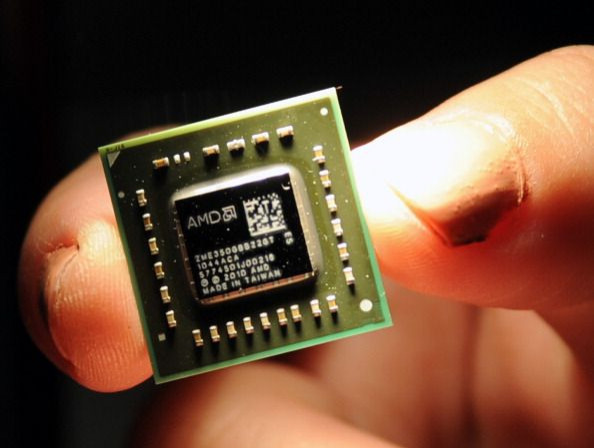AMD's 'Chinese Clone' Plans Implode As US Regulators Close In

The lengthy trade dispute between the U.S. and China has had huge implications for many industries that drive the U.S. economy. In technology, the conflict has put pressure on companies that have aimed to bridge the gulf between the two nations and take advantage of the opportunity to bring new products to the growing Chinese market.
Back in 2016, AMD (NASDAQ:AMD) launched Tianjin Haiguang Advanced Technology Investment Co., or THATIC, a joint venture with a consortium of Chinese companies, to license its x86 chip designs to Chinese chipmakers. AMD and THATIC also set up two other joint ventures -- Chengdu Haiguang Microelectronics Technology (CHMT) and Haiguang IC Design (Hygon).
AMD retained a majority stake in CHMT, which prevented its chip designs from being transferred to THATIC. THATIC, in turn, retained a majority stake in Hygon, which licensed AMD's chip designs from CHMT. CHMT produced the chips by outsourcing them to a foundry, and then sent them to Hygon for packaging, marketing, and sales to Chinese customers.
That arrangement led to Hygon's launch last summer of Dhyana, a high-end x86 CPU for Chinese data centers. The launch initially seemed like a breakthrough for China's domestic CPU market, but Dhyana was technically just a legal clone of AMD's EPYC.
An abrupt end to a risky partnership
For a while, AMD and THATIC's deal placated Washington and Beijing. AMD's intellectual property would only be licensed, not transferred, to a Chinese company, and a Chinese chipmaker gained the ability to sell high-end x86 data-center CPUs.
Unfortunately for AMD, Washington's position recently shifted when it added THATIC, CHMT, and Hygon to its growing "entity list" of Chinese companies with which American companies are barred from doing business.
The Commerce Department cited those joint ventures' close relationships with Sugon, which designs and sells supercomputers for Chinese companies and government agencies, as the main reason for the decision. As a result, AMD won't receive any more royalties from helping Chinese chipmakers produce a "clone army" of EPYC CPUs.
AMD was playing with fire
AMD's joint ventures in China were clearly aimed at helping it profit from the Chinese market without tripping regulatory alarms. Selling x86 CPUs to China was already a thorny issue under the Obama administration, and the U.S. banned Intel (NASDAQ:INTC) from selling its top Xeon chips to China's supercomputer centers back in 2015. Chinese chipmakers developed new CPUs -- but their MIPS, PowerPC, and x86 CPUs couldn't match the horsepower of Intel and AMD's chips.
That's why the consortium of Chinese companies turned to AMD. AMD -- eager to tap into the Chinese market, showcase EPYC's power, and reduce Intel's near-monopoly in data-center chips -- seemed eager to comply. However, the Trump administration probably sees AMD's joint ventures as covers for the "forced technology transfers" it aims to block.
But how badly will AMD get burned?
AMD generated $60 million in licensing revenues from THATIC last quarter, which accounted for 5% of its top line. However, the inclusion of that high-margin revenue significantly boosted its operating profit, which rose nearly fivefold annually to $68 million.
The loss of its Chinese licensing fees will initially sting, but the THATIC deal only covered the first generation of AMD's EPYC designs. AMD plans to launch its second-gen EPYC CPUs in the third quarter, and the upgrade should leave Hygon's Dhyana chips in the dust and allay concerns about AMD's empowerment of Chinese chipmakers.
Going into the second half of the year, stronger sales of AMD's new EPYC, Ryzen, and Navi chips could easily offset the loss of THATIC's licensing revenue. That loss certainly represents a missed opportunity for AMD, but investors shouldn't overreact and sell the stock on this news alone. Instead, they should focus on EPYC and Ryzen's market share gains against Intel, especially as Intel struggles with its ongoing chip shortage, and the ability of its new Navi GPUs to challenge NVIDIA's latest GPUs.
Leo Sun has no position in any of the stocks mentioned. The Motley Fool owns shares of and recommends NVIDIA. The Motley Fool has a disclosure policy.
This article originally appeared in The Motley Fool.





















